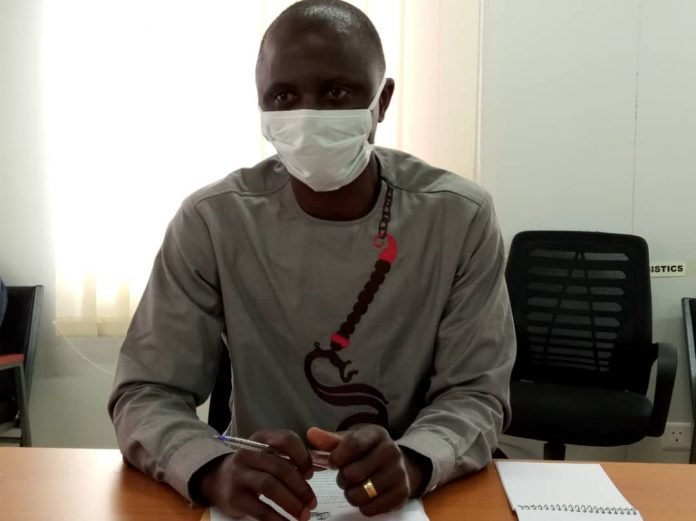By Ibrahim Sorie Koroma
As Sierra Leone joins the rest of the world to commemorate World Hepatitis Day on 28th July 2020, Infectious Diseases Specialist, Dr. Suliaman Lakkoh, who also doubles as coordinator for the Viral Hepatitis National Taskforce in the Ministry of Health and Sanitation, has said that Viral Hepatitis still remains a global public health issue.
He estimated that about 328 people around the world are currently living with the disease and that 1.5 million people are presently dying from the complications of viral hepatitis each year, including liver cancer.
Dr. Lakkoh was speaking at a news conference held at the Emergency Operation Center (EOC) on Wilkinson Road last week Friday.
Dilating on Sierra Leone’s context, the infectious diseases expert said that there is no available national comprehensive date on the prevalence of the disease in the country, but stated that data from some studies have shown a high prevalence among various population groups.
He referenced that for instance, the prevalence of hepatitis B is at 1.3% among children 10 years, 8.7% among health workers, 11.3 % among pregnant women, 15 .2% among blood donors and 21.7% among people living with HIV.
He reiterated that the prevalence of hepatitis C stands at 2% and 6% in male and female blood donors respectively and 4.1% amongst people living with HIV.
“Unfortunately, most people with chronic viral hepatitis are not aware of their status and do not receive/seek appropriate care for hepatitis which he noted can lead to complications and death if early actions are not taken,” Dr. Lakkoh maintained.
He continued that hepatitis is preventable if people are screened, tested and made aware of their status early and put to prompt treatment.
Dr. Lakkoh informed that the Ministry of Health and Sanitation has established the National Viral Hepatitis Taskforce to first of all provide leadership in the fight against the disease and address some of the issues around the prevention and treatment of the disease.
He also assured that the MoHS will continue to work with its partners to provide the required leadership on the prevention and control of the disease and continued that the Health Ministry in collaboration with the US Centers for Disease, Prevention and Control recently embarked on a survey in children and their mothers to be able to make informed decision/choices on the introduction of hepatitis B birth dose vaccine.
Dr. Lakkoh referenced that in last year’s World Hepatitis Day commemoration, they provided FREE screening on viral hepatitis for 957 people in which counseling and preventive messages were provided.
“We will also continue to provide safety blood services, routine hepatitis B immunization for infants and other preventive interventions like FREE condom distribution”. Dr. Lakkoh added.
He stressed that they see Viral Hepatitis as a serious public health issue and committed to the global and regional elimination goals of the disease.
He enlightened that hepatitis is an infection of the liver and is usually caused by the hepatitis virus of which there are three main types: A, B and C, adding that many adults who get the disease experience it for a short time and later get better.
He however cautioned that some people who have hepatitis B and C can develop a long-term infection known as *CHRONIC HEPATITIS* which can cause serious life threatening damage to the liver such as liver disease, liver failure and liver cancer.
“The disease is mostly spread by eating or drinking food or fluids that has been contaminated with infected human faeces and there is more risk associated to the lack of safe drinking water, poor sanitation and hygiene”… He continued… “Hepatitis B and C are most commonly passed on through contact with infected semen, and virginal fluids”.
He ended by listing the mode of transmission of the disease as follows: unprotected sex with an infected person, sharing of unsterilized needle, unsafe disposal of sharps, and tattoo with unsterilized instruments, sharing toothbrush or razor, from an infected mother to child, sacred oath through bleeding and during unsafe blood transfusion.




